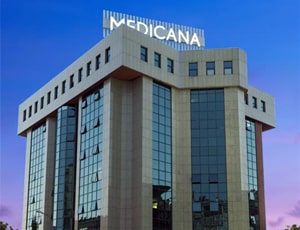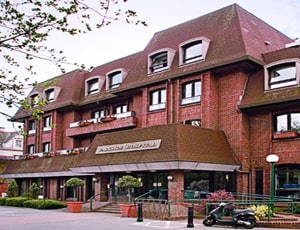If you've been diagnosed with epilepsy, there are a few options for management and treatment of this condition. These include medication, a specific diet, a nerve or brain implant, and surgery may all be used to help you feel better.
Regular follow ups are required in case of both medications and when neurostimulators are implanted to see whether they are working well to manage the epilepsy treatment.
When you get surgery done as an epilepsy treatment, the majority of postoperative swelling and discomfort goes away after a few weeks. You will most likely be unable to return to school or work for one month to three months (on average). Post-epilepsy procedure, you must relax and recuperate for a few weeks before steadily increasing the level of activity.
Medication for Seizures: Your doctor will most likely recommend that you try this first. It helps around seven out of ten patients with epilepsy. Epilepsy medications, often known as anti-seizure or anticonvulsant drugs, alter the way your brain cells communicate with one another.
Ketogenic Diet: This diet is low in carbs and rich in fats and is based on seizure classification. It should be doctor recommended as well as in consultation with a dietitian.
Stimulation of the Nerves: Vagus nerve stimulation: A tiny device called a vagus nerve stimulator will be implanted beneath the skin of your chest and connected to the nerve by your doctor. The gadget transmits tiny bursts of electricity to your brain through the nerve. You'll almost certainly need to continue taking medicine. A neurologist can modify this device throughout your visits to discover the settings that work best for you. It is not suitable for everyone.
Responsive neurostimulation: A tiny device called a neurostimulator is surgically implanted as part of this treatment. It's implanted beneath the surface of your skull by your doctor. It searches for seizure-inducing patterns in your brain activity. When the neurostimulator detects one of these patterns, it interrupts it with a little pulse. This gadget is not available to everyone; eligibility is determined by the kind of epilepsy.
Surgical Resection: The portion of your brain that produces the seizures will be removed by the surgeon. When the region of the brain generating the seizures is tiny, with well-defined borders, and does not regulate things such as speech, movement, vision, or hearing, this operation is most commonly performed.
Disconnective Surgery: Rather than removing a section of your brain, the surgeon will sever the pathways between the brain nerves that cause your seizures.
Complications and risks of various kinds of epilepsy treatment:
Tiredness, stomach upset or pain, dizziness, or blurred vision are some of the frequent adverse effects that might occur in the first few weeks of using seizure medications.
Complications of the Vagus Nerve Stimulation:
Complications of Responsive Neurostimulation:
There are dangers connected with responsive neurostimulation since it requires brain surgery to place the device. Following brain surgery, there is a slight chance of infection, bleeding, discomfort, and neurological damage.
Complications of Epilepsy Surgery:
The most frequent kind of epilepsy surgery is the excision of part of the temporal lobe. Potential complications of this surgical procedure involve difficulties with memory, a partial vision impairment, depression or even other emotional disorders. Such dangers usually differ from one person to the next, and in certain situations, they may only be transitory.

Istanbul, Turkey
Founded in 1999, Medicana Camlica is a specialty hospital of the Medicana Group which is well known ...more
![]() Private Rooms
Private Rooms
![]() Translator
Translator
![]() Nursery / Nanny Services
Nursery / Nanny Services
![]() Airport Pick up
Airport Pick up

Delhi, India
Equipped with more than 50 specialty institutes, Indraprastha Apollo was started with the vision of ...more
![]() Private Rooms
Private Rooms
![]() Translator
Translator
![]() Nursery / Nanny Services
Nursery / Nanny Services
![]() Airport Pick up
Airport Pick up

London, United Kingdom
History Parkside Hospital based in London is currently owned by Aspen Healthcare. Aspen Healthcare ...more
![]() Accommodation
Accommodation
![]() Airport Transfer
Airport Transfer
![]() Choice of Meals
Choice of Meals
![]() Interpreter
Interpreter

Neurologist
Noida, India
20 Years of experience
USD 30 for video consultation

Neurologist
Dubai, U.A.E.
12 Years of experience
USD 140 for video consultation

Neurologist
Faridabad, India
10 of experience
USD 40 for video consultation

Neurologist
Mumbai, India
5 of experience
USD 25 for video consultation